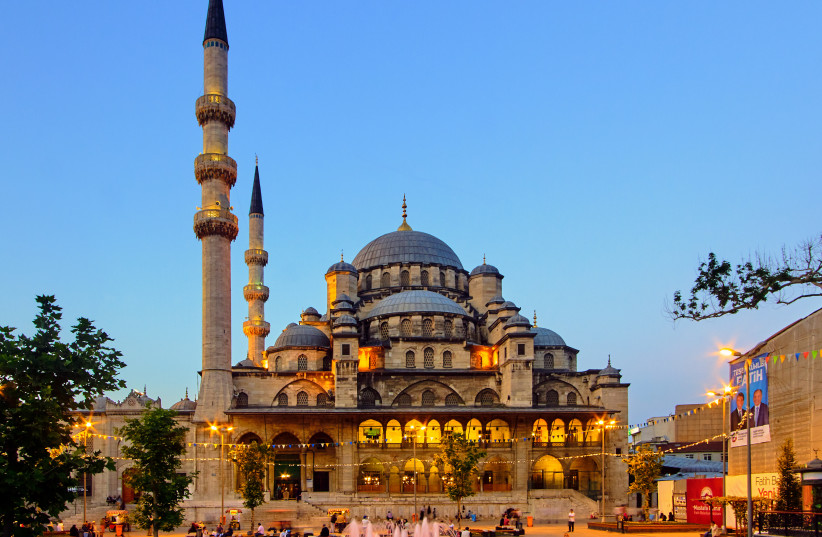Artworks by some Israeli artists were canceled before the Sunday opening of the 10th annual edition of the Mediations Biennale at Art Istanbul Feshane.
The Turkish organizers informed curator Drorit Gur Arie that works she had selected by Ran Slavin, Shahar Marcus, and Lee Yanor, would be removed. The reason given for the cancellation was fear of mob violence should it be discovered that Israeli artworks were on display during the war.
Gur Arie’s exhibit “Shape the Beauty” was removed, however, other Israeli works selected by Israeli curator Belu Simion Fainaru were not. Israel is absent from the Biennale’s site, as is Romania. This despite the fact that Fainaru is showing works by Romanian artist Ciprian Muresan. However, Taliban-ruled Afghanistan – once home to another Fainaru selection, artist Lela Ahmadzai, currently based in Germany – is on the exhibition’s site.
Fainaru told The Jerusalem Post, that “All Turkish curators and artists we met wanted to work together. In previous biennales we brought Turkish artists here [to Israel], which the Turkish cultural establishment appreciated.”
Art-related riots in Turkey
Unfortunately, he said, the Turkish concerns are well founded. An art-related riot did break out in June. Back then Feshane, a former industrial space converted to an art center, was presenting the exhibition “Beginning from the Middle,” depicting LGBTQ themes. Another source, familiar with the Turkish art scene, spoke to the Post on condition of anonymity, explaining that Feshane is the first publicly funded arts center in Istanbul, which is why it faced public rage over the June exhibition.

“The Nisanca neighborhood, where Feshane is, is not a central one,” the source said, “but it is not like they stuck an art center in an ultra-Orthodox neighborhood.”
Nevertheless, he added, “Istanbul is a large city and there are people living there who want to experience Western-oriented culture.”
The source argued that the art space is being used as a pawn within the context of the upcoming March municipal elections in Turkey. In this sense, art has become another battleground between conservative and liberal forces in Istanbul.
“YOU ARE telling the world that we do not have democracy,” Istanbul Mayor Ekrem Imamoglu said, in the context of the June exhibition outrage, “and especially that there is no respect for art,” the Duvar English website reported.
These words also ring true in the context of the Israeli artworks.
The works of Israeli artists Boaz Kaizman, Angelika Sher, Or Fainaru, and Hanan Abu-Hussein are currently on display.
“Israel and its artists are now facing isolation,” Fainaru said, “we must use every chance to make our voice heard and show our presence.”
He added that this is why it was agreed to keep said works on display despite the “disappointment, anger, and the unjust cancellation” of the other Israeli artists.
Nezaket Ekici, the Turkish artist with whom Shahar Marcus has worked with since 2012, suggested that he nevertheless travel to Istanbul so that the two of them can stand together next to their shared work, Fossils, during the opening, Marcus told the Post.
“I am a Jewish Israeli artist, she is a Muslim artist from Turkey, yet she is willing to stand by my side,” he said.
Mediations Biennale’s “I am another You, You are another Me” will close on Monday, December 11. The chief curator, under whom Fainaru and Gur Arie both worked, is Tomasz Wendland.
150 artists from 38 countries are showing their work at Mediations Biennale at Art Istanbul Feshane. mediations.pl/istambul/.
